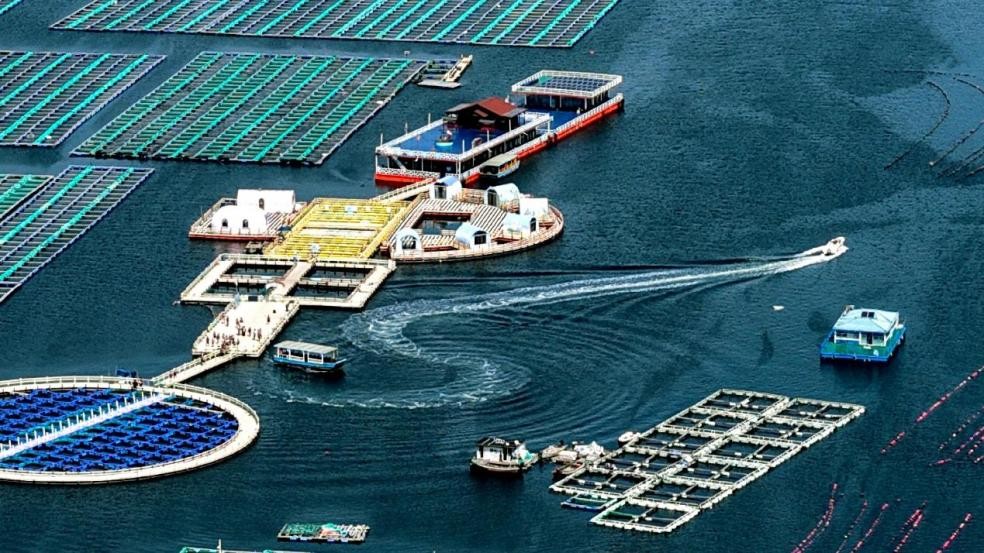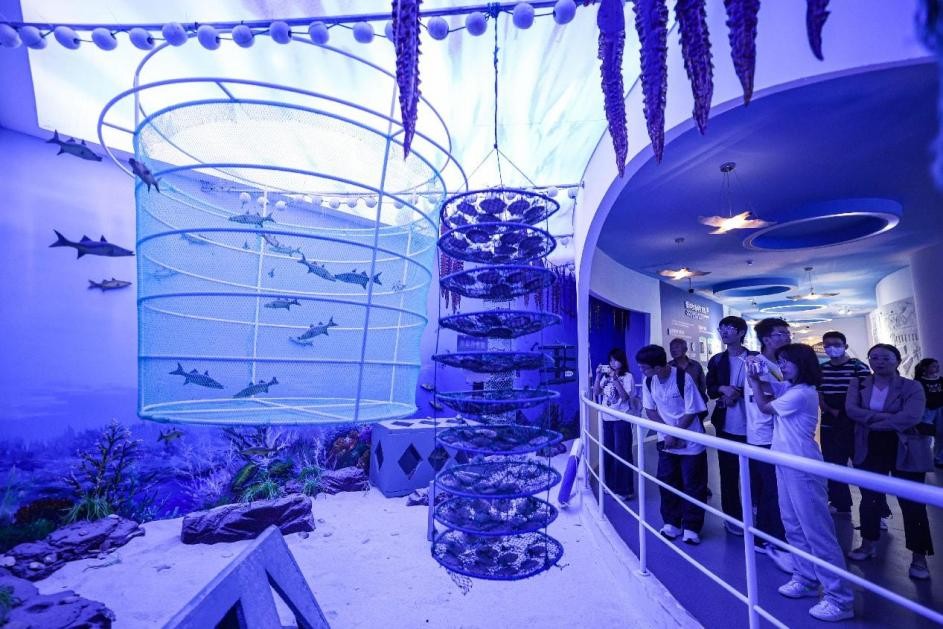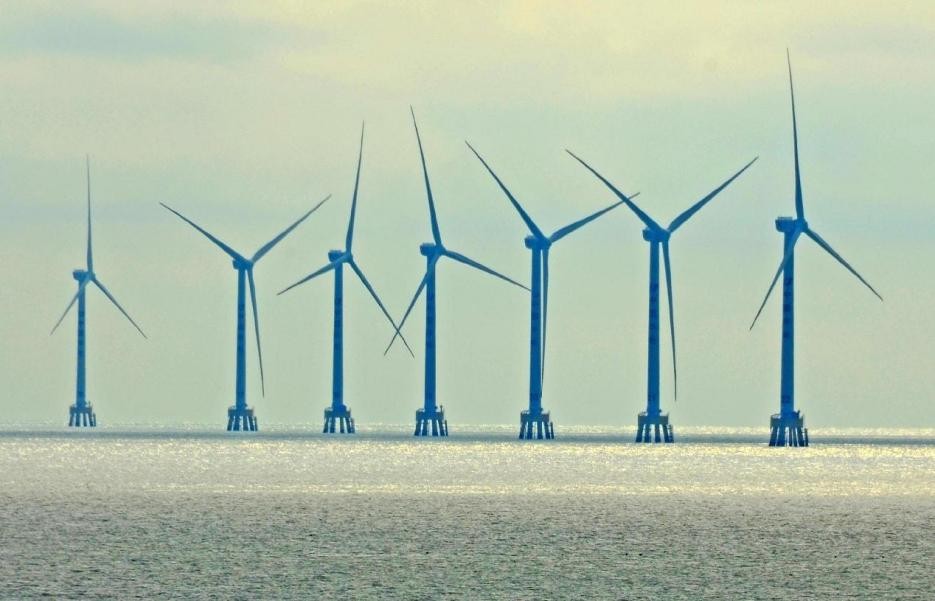




- BRNN
- BRI News
- BRNN News
- Database
Official Documents Polices and Regulations
Inter-government Documents International Cooperation BRI Countries
Business Guide Economic Data BRI Data
Trade
Investment Projects Latest projects
Cases - Content Pool

Photo shows tourists boating near a marine farm in Rongcheng, east China's Shandong province. (Photo/Yang Zhili)
In waters south of Zhuhai, south China's Guangdong province, China's first independently developed megawatt-scale floating wave energy generation device "Nankun" rises and falls with the swells. It generates an average of 10,000 kilowatt-hours of electricity per day, enough to meet the daily electricity needs of about 1,500 households.
In Lingshui Li autonomous county, south China's Hainan province, a commercial underwater data center has operated stably for more than two years, using seawater as a natural coolant to cut energy consumption and boost efficiency.

Visitors learn about three-dimensional aquaculture models at the national-level marine ranching exhibition hall in Rongcheng, east China's Shandong province learn about vertical fish farming. (Photo/Li Xinjun)
In recent years, as China strengthens its capacity to develop and harness ocean resources, regions across the country have been unlocking the vast potential of the "blue economy," opening broad prospects for a new era of modern "marine farming."
For much of human history, humanity's interaction with the sea centered on the benefits of fisheries and salt, and the convenience of navigation. In the traditional sense, "marine ranching" evokes fishing boats skimming the waves, dense arrays of aquaculture cages, or swaying kelp fields. Today, with the continued high-quality development of the ocean economy, the concept has taken on a broader and deeper meaning.

Photo shows an offshore wind farm in Ganjiang township, Yuhuan, east China's Zhejiang province. (Photo/Duan Junli)
New methods are taking hold. Guoxin 1 2-1, the world's first 150,000-ton intelligent aquaculture vessel, pioneers a ship-based tank-farming model designed to produce about 3,600 tons of high-quality fish annually. The salmon-farming vessel Suhai-1 is equipped with water-quality monitoring, automated feeding, and intelligent control systems, enabling on-board processing and rapid distribution, improving freshness, stabilizing supply, and enhancing the market competitiveness for domestically farmed salmon.
The Internet of Things, big data, and artificial intelligence are being deeply integrated into modern marine ranching. Empowered by technology, traditional fisheries are shifting from relying on nature's mercy to working with nature through knowledge. Large truss cages and aquaculture engineering systems precisely regulate feeding; satellite remote sensing and maritime communications give vessels far-seeing "eyes" and keen "ears." The digital, intelligent transformation is strengthening China's "blue granary."
New resources are being explored. Ocean energy is far more diverse than many imagine - from generating power via temperature differences between surface and deep waters to harnessing salinity gradients between freshwater and seawater. This year, Guangzhou launched construction of a national major research facility - the Cold-Seep Ecosystem Research Facility - to explore the immense potential of methane and cold-seep biota.
Accelerating breakthroughs in deep-sea exploration and operations, and in the R&D of marine technologies and equipment, is bringing previously inaccessible or undeveloped deep-sea energy resources into practical use, injecting fresh vitality into the ocean economy.
New industries are emerging. From a domestically developed, marine-origin Class I immuno-oncology drug entering Phase II clinical trials, to China's first large cruise ship carrying some 600,000 inbound and outbound passengers in its inaugural year, and to the country's first integrated offshore wind power and marine ranching demonstration project generating over 2 billion kilowatt-hours of electricity and nearly 100 million yuan ($14.04 million) in annual aquaculture revenue, the ocean economy is rapidly diversifying, with emerging sectors and innovations driving growth.
With the goal of building marine industries that are stronger, more competitive, and more dynamic marine industries, China is turning its vast seas into thriving industrial hubs. The "blue engine" of the ocean economy is powering the country's high-quality development with renewed momentum.
The deeper China ventures into the oceans, the more it enters uncharted waters, where there are no ready-made roadmaps. To open new frontiers in the marine economy, local governments across China are making innovation the key driver, advancing original and pioneering research to achieve greater self-reliance and strength in marine science and technology.
At the same time, by rejecting the old path of development at the cost of pollution, and by upholding a balanced approach that values both utilization and protection, pollution control and ecological restoration, China is caring for the ocean as it cares for life itself.
Through these efforts, the nation is striving to foster harmony between humanity and the sea and to contribute more to the sustainable development of the global ocean community.

Tel:86-10-65363107, 86-10-65368220, 86-10-65363106